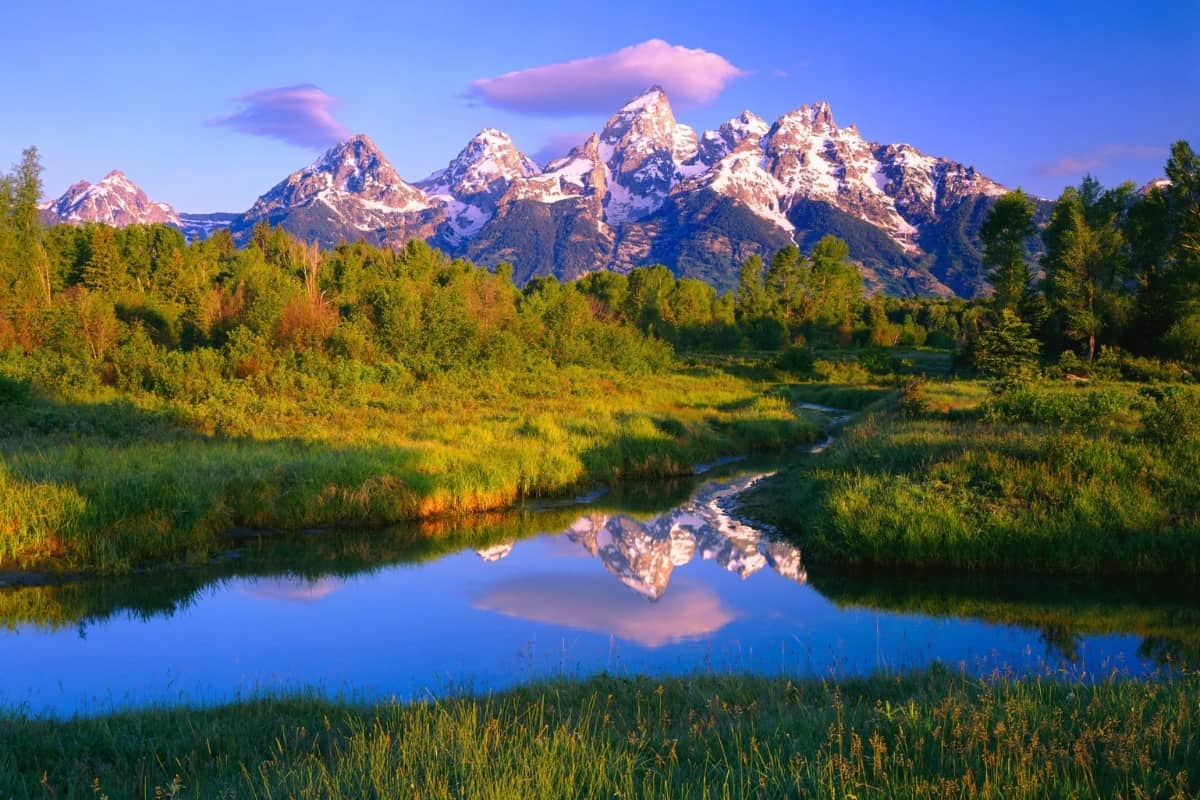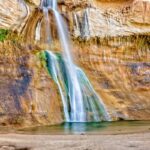Grand Teton National Park, with its iconic landscapes and diverse wildlife, draws millions of visitors each year. However, while tourists soak in the natural beauty of the Tetons, some find themselves falling victim to various scams. These fraudulent activities, ranging from fake wildlife tours to counterfeit merchandise, not only tarnish the experience but also drain pockets. To safeguard against these traps, here’s an in-depth look at seven common scams that are currently catching out tourists at Grand Teton National Park.
1. Fake Wildlife Tours
Wildlife enthusiasts flock to Grand Teton hoping to see moose, elk, bison, and bears in their natural habitats. Taking advantage of this excitement, some operators advertise wildlife tours with guaranteed sightings. Unfortunately, these “tours” are often expensive and deliver little to no actual wildlife encounters. Tourists are often taken to areas where animals are unlikely to appear, particularly during midday when wildlife is least active. Many of these scammers operate without proper permits, and by the time visitors realize they’ve been duped, their money is long gone.
Booking tours through reputable companies or checking reviews on platforms like TripAdvisor is crucial to avoid such scams. Visitors should also be wary of anyone offering guaranteed sightings, as wildlife behavior is unpredictable.
2. Overpriced Lodging Scams
Lodging around Grand Teton National Park can be hard to find during peak season, especially with accommodation inside the park often booked months in advance. Scammers have capitalized on this by creating fake websites for local lodges or vacation rentals. They ask for payment upfront, only for travelers to discover upon arrival that their reservation never existed.
This scam tends to target tourists unfamiliar with the area, who might rush to secure last-minute accommodation. Always book through official channels or well-known travel platforms, and avoid sending money via wire transfer or other non-secure payment methods.
3. Parking Lot Scammers
Popular spots like Jenny Lake and Mormon Row get crowded quickly, and parking can be scarce during busy hours. Some scammers pose as parking attendants, charging fees for what are actually free parking areas. They may even wear fake uniforms to appear legitimate.
This scam can be easily avoided by checking parking fees at the entrance or the official Grand Teton website. Knowing that most parking in the park is free helps, and any attendant charging money without clear signage should raise red flags.
4. Bogus National Park Passes
The internet is filled with websites offering discounted or free park passes for national parks like Grand Teton. However, many of these passes are counterfeit, leaving tourists without valid entry once they arrive at the park.
Official park passes should always be purchased through the National Park Service website or at the park entrance. Buying passes from third-party websites, especially at suspiciously low prices, can lead to frustration and additional costs upon arrival.
5. Fake Guide Services
With the many trails and challenging terrains in Grand Teton, it’s common for visitors to seek the help of a guide. Unfortunately, some so-called guides offer their services without proper certification, leading tourists into dangerous situations. This is particularly common for hikes in remote areas like Cascade Canyon, Death Canyon, or Paintbrush Canyon.
A certified guide not only ensures safety but also enhances the overall experience with knowledge about the park’s geology, wildlife, and history. To avoid hiring an unqualified guide, it’s best to consult the official Grand Teton National Park website or local tour companies with verified credentials.
6. Counterfeit Park Merchandise
Merchandise scams are another common problem around Grand Teton National Park. Vendors in nearby towns sell fake memorabilia claiming to be crafted by local artisans. These products are often mass-produced and sold at prices much higher than their actual value.
Tourists should be cautious when purchasing souvenirs from roadside stands or flea markets. Authentic park merchandise is usually available at official gift shops located within the park, and buying from these locations ensures quality while supporting park conservation efforts.
7. Phishing for Conservation Donations
Phishing scams disguised as charity drives for wildlife conservation have also become more prevalent. Fraudsters pose as representatives from legitimate conservation organizations and ask tourists to donate to protect the park’s wildlife or contribute to environmental initiatives. Unfortunately, these donations rarely make it to the park.
Donating to conservation efforts should always be done through official organizations like the National Park Foundation or Grand Teton National Park’s own donation programs. Verifying the legitimacy of any charity before donating is crucial to avoid falling victim to such scams.
How to Avoid These Scams
Visitors to Grand Teton National Park can avoid scams by staying informed and vigilant. Here are a few tips to help steer clear of fraud:
- Verify all purchases: Whether booking a tour, lodging, or buying park passes, use official sources or reputable platforms. This applies especially when reserving services online.
- Question anything too good to be true: Wildlife tours with guaranteed sightings, unbelievably cheap lodging, or discounted park passes should be approached with caution. Scammers often lure in victims with promises that are unrealistic.
- Check credentials: When hiring guides, ensure they are certified and experienced. This is especially important for high-altitude or backcountry hikes, where safety is paramount.
- Be aware of parking regulations: Most parking lots in Grand Teton National Park are free. If someone is charging you for parking in an area that doesn’t clearly display a fee structure, it’s likely a scam.
- Shop carefully: For souvenirs, the best bet is to purchase from official park stores or shops that display the “Authentic National Park Merchandise” label. Supporting local artisans is commendable, but authenticity should be verified.
- Donate through official channels: If inclined to support park conservation efforts, donate directly through the park’s website or well-known organizations like the National Park Foundation.
Conclusion
Grand Teton National Park is a must-see destination, offering breathtaking landscapes and unforgettable experiences. Unfortunately, it’s also a prime target for scammers preying on unsuspecting tourists. Being aware of common scams, verifying sources, and using reputable services can help ensure a stress-free and memorable visit to one of America’s most iconic national parks.
By staying informed and cautious, visitors can enjoy the beauty of Grand Teton without falling prey to fraudulent schemes.






